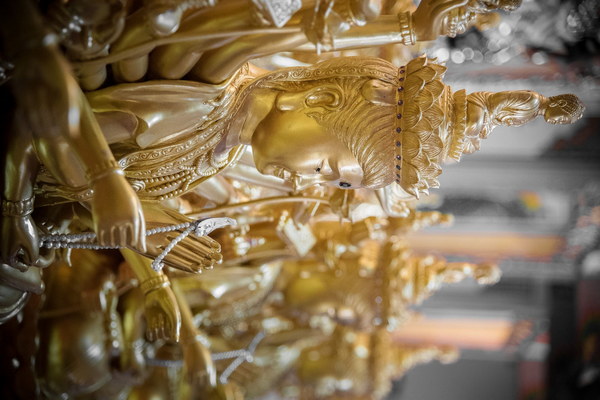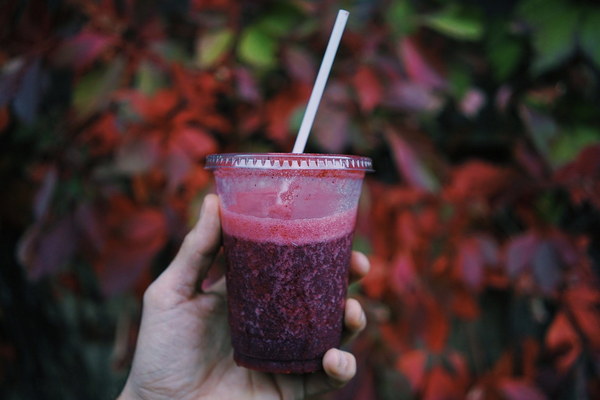Nourish Your Liver and Kidneys Expel Dampness A Comprehensive Guide to Traditional Chinese Herbs
In the realm of Traditional Chinese Medicine (TCM), maintaining the health of the liver and kidneys is of paramount importance. These organs play crucial roles in the body's overall balance and function. However, due to modern lifestyle factors such as poor diet, lack of exercise, and stress, many individuals find themselves suffering from liver and kidney imbalances. To address this, TCM offers a variety of natural remedies, primarily through the use of specific herbs. This article will delve into the world of TCM, exploring the concept of dampness and the essential herbs used to nourish the liver, kidneys, and expel dampness.
Understanding Liver and Kidney Health in TCM
In TCM, the liver and kidneys are considered the roots of life and are vital to maintaining overall health. The liver is responsible for storing blood, regulating emotions, and ensuring the smooth flow of Qi (vital energy). Meanwhile, the kidneys are responsible for storing essence, producing sperm, and regulating water metabolism.
When the liver and kidneys are imbalanced, various health issues may arise, including fatigue, irritability, poor digestion, and reproductive disorders. Dampness is a common underlying factor in such imbalances, often caused by factors such as overeating, excessive dampness in the environment, or excessive consumption of cold and damp foods.
Herbs for Nourishing the Liver and Kidneys, and Expelling Dampness
1. Bai Zi Ren (Biota Seeds): Known for their ability to nourish the liver and kidneys, Bai Zi Ren is often used to treat weakness, fatigue, and irritability. Additionally, it helps to expel dampness from the body.
2. Fu Ling (Poria): This herb is highly effective in drying dampness and promoting urination. It is commonly used to treat conditions such as edema, damp-heat, and urinary tract infections.
3. Huang Bai (Phellodendron Amurense): A powerful herb for nourishing the kidneys, Huang Bai helps to strengthen the bones, improve urination, and expel dampness. It is also used to treat damp-heat and itching skin conditions.
4. Shan Zhu Yu (Cortex Eucommiae): This herb is renowned for its kidney-nourishing properties, particularly in treating kidney weakness, dizziness, and lower back pain. It also helps to expel dampness.

5. He Huan Pi (Mimosa Tree Bark): He Huan Pi is a popular herb for nourishing the liver and calming the mind. It is often used to treat irritability, anxiety, and insomnia. Additionally, it helps to expel dampness and relieve joint pain.
6. Ze Xie (Alisma): Ze Xie is an excellent herb for draining dampness and clearing heat. It is commonly used to treat edema, damp-heat, and urinary tract infections.
7. Fu Ling Pi (Poria Cortex): Similar to Fu Ling, Fu Ling Pi is effective in drying dampness and promoting urination. It is often used in conjunction with other herbs to treat damp-heat and dampness-related conditions.
8. Po Huang (Glycyrrhiza Uralensis): Po Huang is a potent herb for nourishing the liver and kidneys, as well as expelling dampness. It is commonly used to treat weakness, fatigue, and irritability.
Combining Herbs for Maximum Effectiveness
In TCM, it is essential to customize treatment plans based on the individual's specific condition and constitution. Therefore, it is crucial to consult with a qualified TCM practitioner before starting any herbal treatment. A practitioner may combine several of the above-mentioned herbs to create a personalized formula that addresses the root cause of the liver and kidney imbalance, while also expelling dampness.
In conclusion, TCM offers a wealth of natural remedies to nourish the liver and kidneys and expel dampness. By incorporating these traditional herbs into one's wellness routine, individuals can promote overall health and well-being. Remember, consulting with a TCM practitioner is essential to ensure the safety and effectiveness of herbal treatments.









